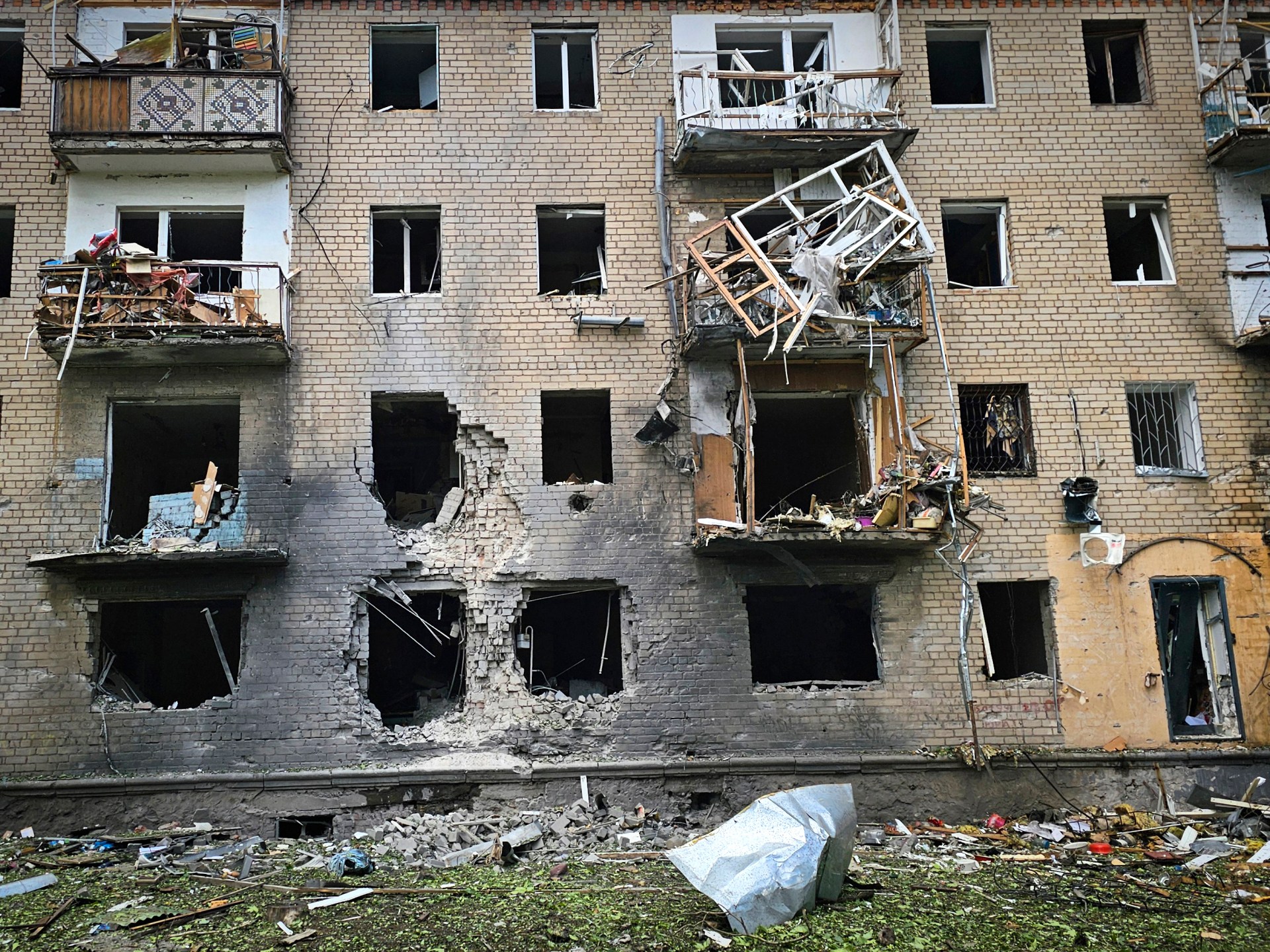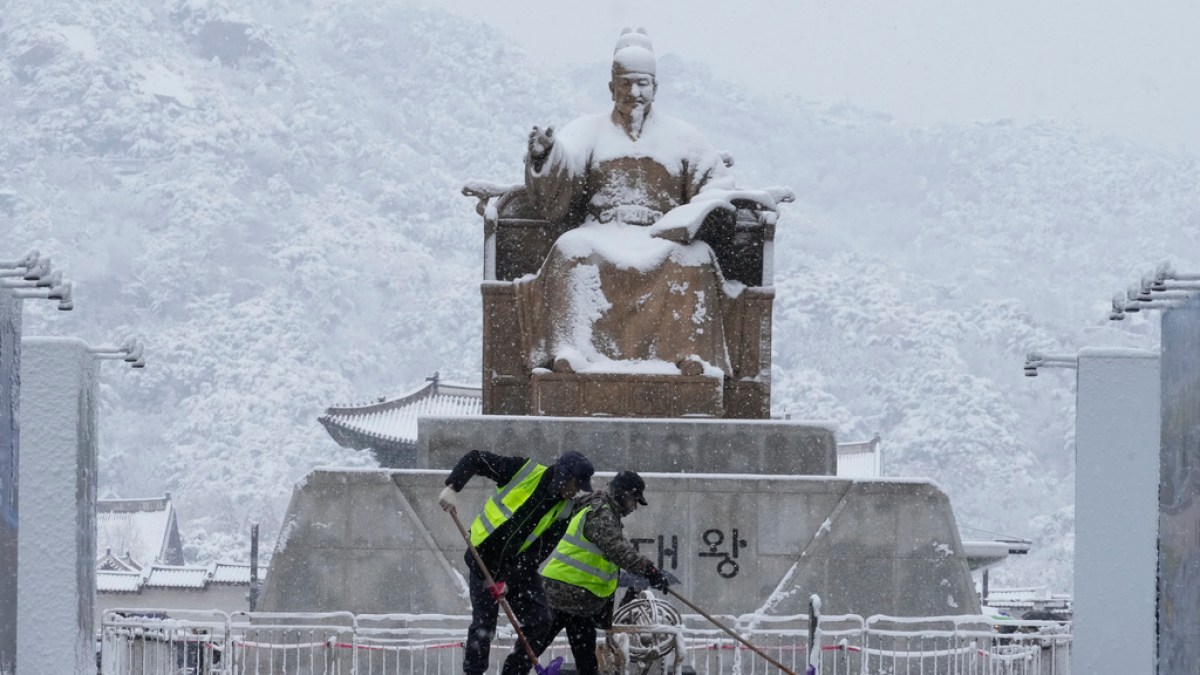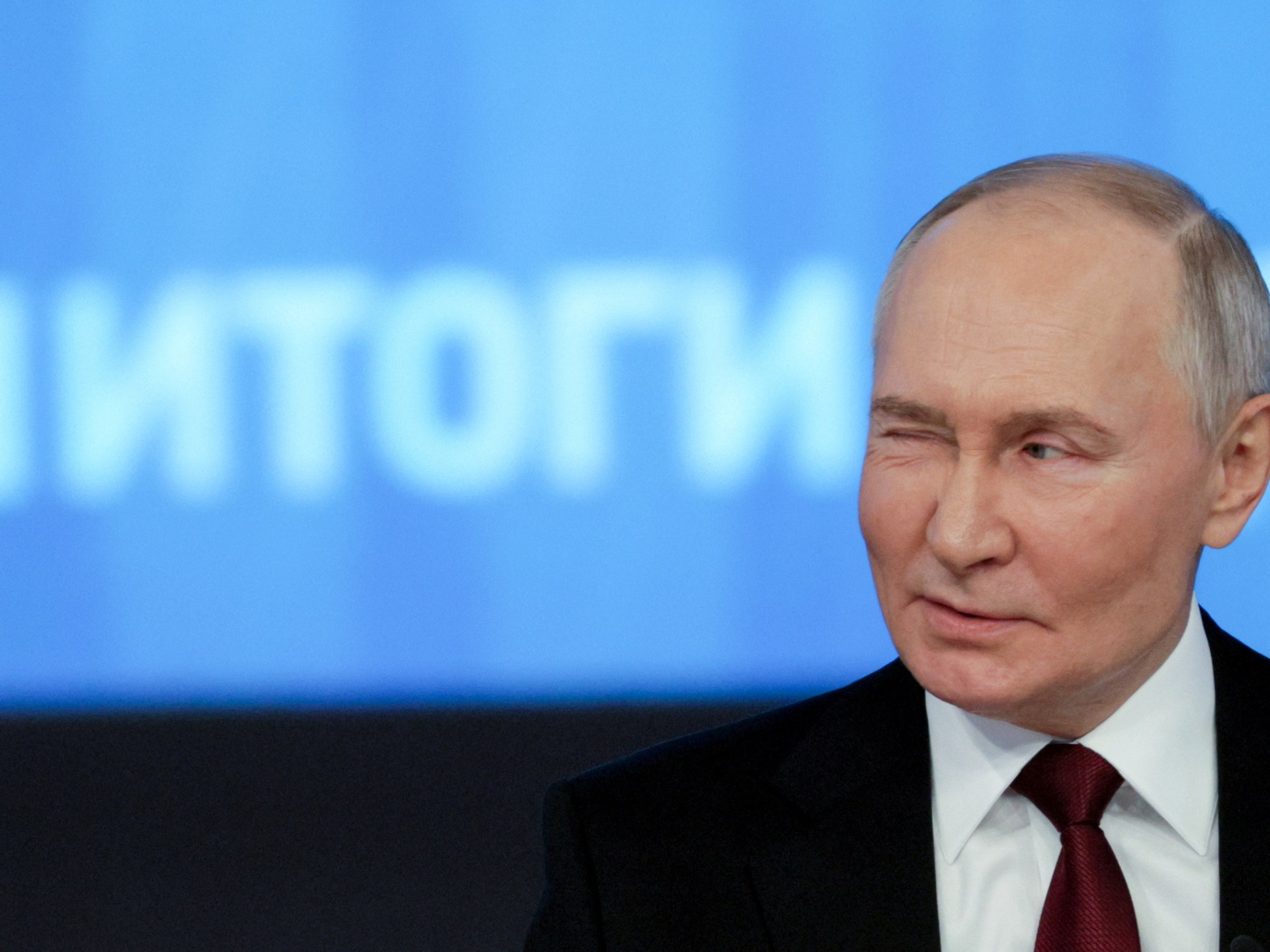First Syria flight takes off from Damascus airport since Assad’s downfall
 18 December 2024
18 December 2024


The first commercial flight in Syria since the toppling of longtime President Bashar al-Assad earlier this month has taken off from Damascus airport.
The flight landed in Aleppo, in the country’s north, on Wednesday with 43 people on board including a group of journalists.
Pro-Assad forces abandoned the airport in the capital on December 8 as opposition fighters closed in on the city following a lightning offensive that began on November 27. Since then, no flights had taken off or landed due to security reasons.
Earlier this week, airport staff painted the pro-opposition three-star flag on aeroplanes, a symbol of the 2011 uprising now adopted by the transitional authorities. Inside the terminal, the new flag has also replaced the one associated with the government of al-Assad, who fled to Russia.
An airport official told the AFP news agency on condition of anonymity that international flights would resume on December 24, following maintenance work.
Meanwhile, neighbouring Jordan has reopened the Jaber border crossing with for trade, resuming the flow of goods and freight traffic between the two countries.
Advertisement
More than 13 years after a brutal crackdown on antigovernment protests morphed into a multisided war that killed hundreds of thousands and displaced millions, Syria is struggling to get back on its feet as it comes to terms with the scars of torture, disappearances and summary executions.
The group at the helm of Syria’s new ruling coalition, Hayat Tahrir al-Sham (HTS), has sought to keep its institutions going and kickstart its economy. Once rooted in Syria’s branch of al-Qaeda and designated a “terrorist” organisation by several Western governments, HTS has softened its rhetoric and pledged to protect the nation’s diverse religious and ethnic communities.
While the new caretaker administration in Damascus has set out few details on its thinking for the next steps for the country, newly appointed Prime Minister Mohammed al-Bashir, who formerly led an HTS-affiliated government in Idlib province, has said he will remain in office until March.
On Wednesday, a day after meeting HTS leader Ahmed al-Sharaa in Damascus, United Nations Special Envoy Geir Pedersen called for “free and fair elections” in Syria after the transition and urgent humanitarian assistance for the country.
Pedersen, who on Tuesday warned that the war has not yet ended, told reporters in Damascus that “there is a lot of hope that we can now see the beginning of a new Syria”.
He also expressed hope for a “political solution” in the Kurdish-held northeast, where the US-backed, Kurdish-led Syrian Democratic Forces (SDF) are battling Turkish-backed groups who have captured several Kurdish towns since the offensive began in the rest of the country last month.
Advertisement
Speaking to AFP, HTS military chief Murhaf Abu Qasra said Kurdish-held areas would be integrated under the country’s new leadership, adding that the group rejects federalism and that “Syria will not be divided.”
“The Kurdish people are one of the components of the Syrian people … Syria will not be divided and there will be no federal entities,” he said.
Abu Qasra, known by his nom de guerre Abu Hassan al-Hamawi, also said the group would be “the first” to dissolve its armed wing and integrate into the armed forces.
Meanwhile, Hadi al-Bahra, head of the Syrian National Coalition that grouped opponents of al-Assad during the war, said on Wednesday that Syria’s transitional government should be credible and not exclude any Syrian party or be based on sectarianism.
The Turkiye-based Syrian National Coalition would return to Syria and set up headquarters there, al-Bahra told journalists at a news briefing, adding that he intended to return as well.
“Logistics should be worked out and freedom of speech should be guaranteed,” he added.
His comments came a day after members of the UN Security Council in a statement called for the implementation of “an inclusive and Syrian-led and Syrian-owned political process” that they said should meet the legitimate aspirations of all Syrians, protect all of them and “enable them to peacefully, independently and democratically determine their own futures”.
The 15-member body also emphasised battling “terrorism” across the country, stressing that Syria must abide by council resolutions on non-conventional weapons and reiterating support for UN peacekeepers and the inviolability of diplomatic premises.
Advertisement
Related News

Russian attacks kill one in Ukraine, damage energy infrastructure

At least three dead as South Korea battles heavy snow

Key takeaways from Trump’s first rally speech as president-elect
